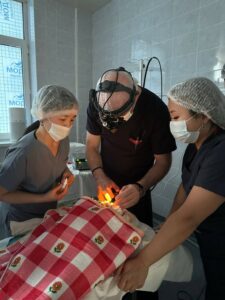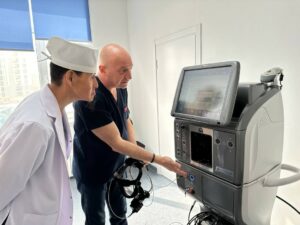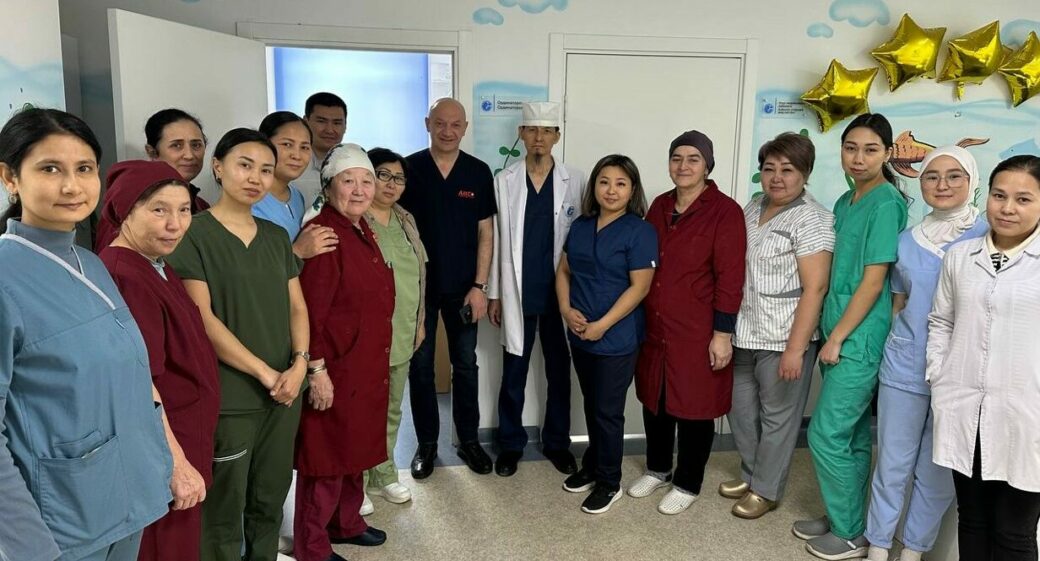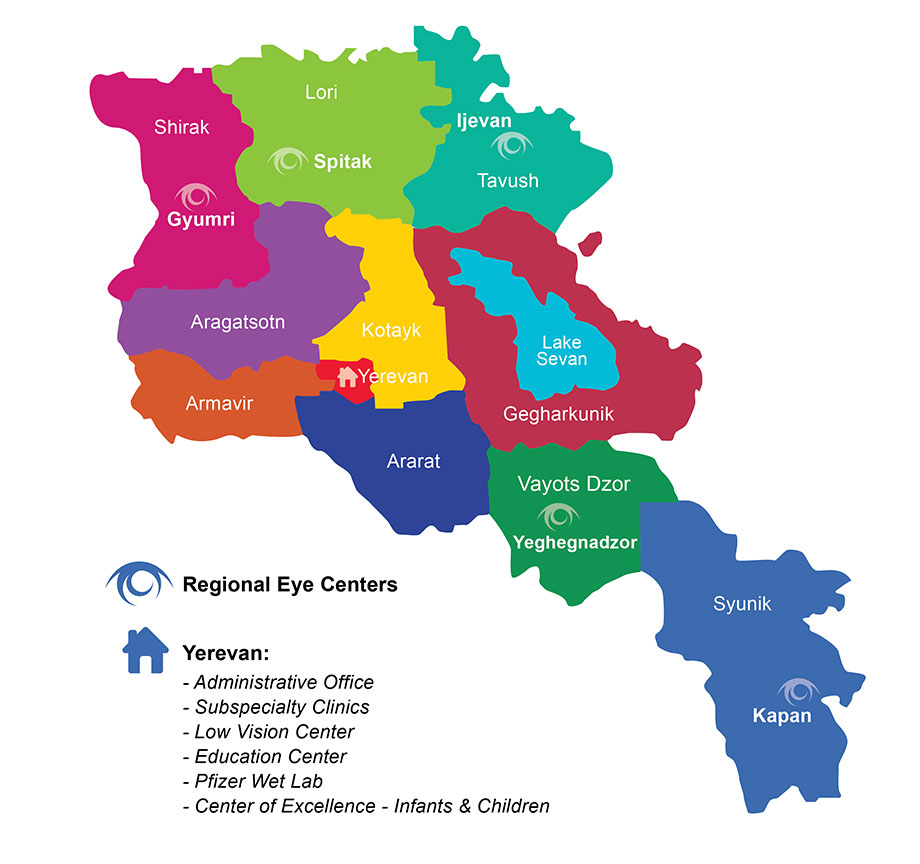The Armenian EyeCare Project (AECP), in collaboration with our longtime partner Children’s Hospital Los Angeles (CHLA), has been working to combat childhood blindness in Armenia since 2010. This is when physicians in Armenia, along with the AECP, noticed a disturbing trend of babies going blind due to retinopathy of prematurity (ROP), a debilitating eye disease that leads to blindness if left untreated.
Soon after, the AECP, with help from CHLA, began a targeted program to treat infants with ROP; developed a cutting-edge new facility in partnership with USAID – the Center of Excellence for the Prevention of Childhood Blindness – in Yerevan; and started saving the sight of hundreds of babies in Armenia one surgery at a time. The results have been incredible: No child in Armenia has gone blind from ROP since 2018.

Colleagues from Kygyzstan welcome Dr. Tadevos Hovhannisyan
With such a successful program, the AECP is often asked to share our expertise and knowledge in the prevention of childhood eye disease with other developing countries. Most recently, Dr. Tadevos Hovhannisyan, a vitreoretinal surgeon and AECP’s chief ROP surgeon in Armenia, traveled to Bishkek, the capital of Kyrgyzstan, to train physicians there in the prevention of ROP and other childhood eye disease.
The request to share AECP’s experience in developing a nationwide ROP program in Armenia and training local specialists in Kyrgyzstan came from Kyrgyz doctors who had participated in the AECP-CHLA International Conference last year and visited the Center of Excellence for the Prevention of Childhood Blindness in Armenia.
Dr. Hovhannisyan arrived in Kyrgyzstan on February 29, 2024 and began his work with ophthalmologists from the country’s National Center for Maternal and Child Welfare. In the span of the intensive two-day visit, Dr. Hovhannisyan examined 40 children. This included pre-term infants of 35-37 weeks of gestation who had a high probability of having retinopathy of prematurity after birth as well as older children with severe eye pathologies and/or chronic eye diseases.

Dr. Hovhannisyan performing procedure on baby while Kyrgyz doctors receive on-job training
Dr. Hovhannisyan also trained three specialists in the country on screening and treatment techniques for childhood eye disease and performed laser procedures and anti-VEGF injections. During the hands-on training, trainees had the opportunity to examine newborns’ eyes with the use of a retinal camera that Dr. Hovhannisyan had brought from Armenia. The trainees also carried out laser treatment under Dr. Hovhannisyan’s supervision.
“We have started a very interesting collaboration and my hope is that it will be quite impactful,” Dr. Hovhannisyan said. “Our colleagues from Kyrgyzstan have good theoretical knowledge but they lack practice and that is why they reached out to the Armenian EyeCare Project.”
Of the trip, he said it was “short but very intense” and that as a result of the training that took place during the visit, local doctors in the country have now started performing laser procedures.
“Many aspects of cooperation were discussed and I am ready to continue providing medical mentorship to these physicians,” Dr. Hovhannisyan said. “I also met with neonatologists at the hospital and reiterated the importance of strong collaboration among all parties involved while dealing with ROP as a necessary prerequisite for good outcome of intervention.”

Drs. Tadevos Hovhannisyan and Emilbek Misirov discuss the equipment available in Bishkek
Kyrgyzstan’s Chief of the Department of Pediatric Eye Diseases Dr. Emilbek Misirov expressed great appreciation for the opportunity to work with Dr. Hovhannisyan and gain the appropriate education and training for local physicians to treat childhood eye disease like ROP.
“Previously we could only diagnose retinopathy of prematurity… we had no skills to do laser treatment by ourselves,” Dr. Misirov said. “Parents need to spend a lot of money to travel abroad for treatment and the worst thing was that children whose families could not afford the trip had no opportunity to escape further severe vision deterioration. Now we can implement sight-saving laser treatment in our country!”
In line with its mission, the Armenian EyeCare Project strives to eliminate preventable blindness and the organization is ready to share its experience and knowledge with all who are interested, replicating what once CHLA did by sharing its wealth of knowledge in ROP prevention with Armenia’s specialists.







